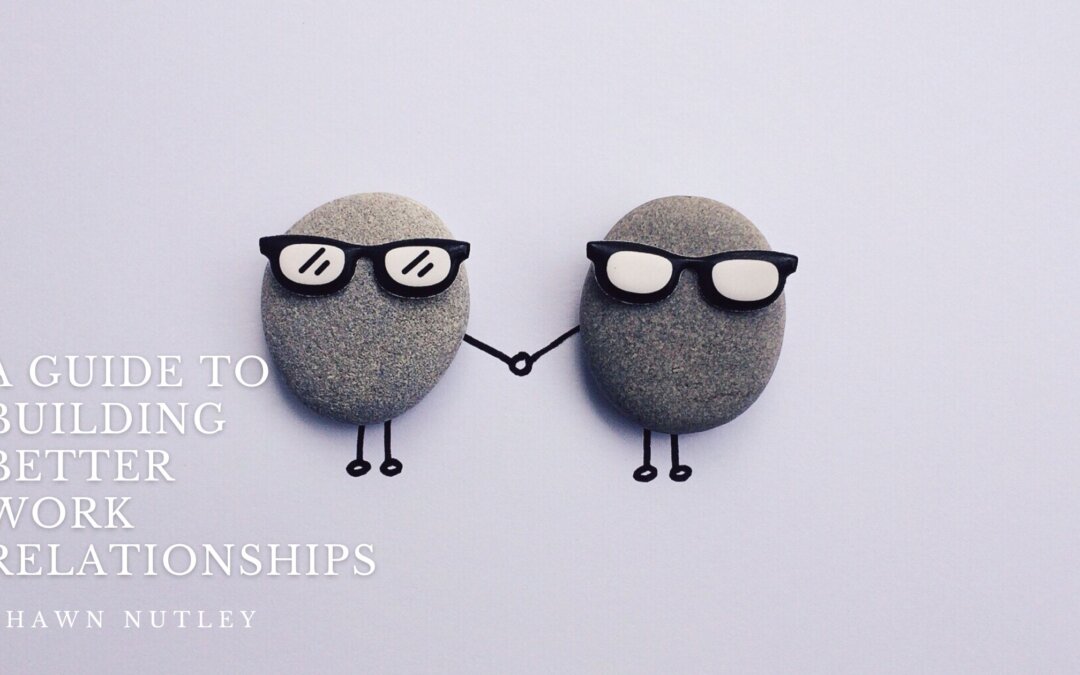Establishing strong, positive connections with colleagues isn’t just a nicety; it’s a necessity. Relationships often lead to innovation and can greatly influence career advancement. The goal here is not just to coexist but to foster an environment where mutual respect and understanding pave the way for collaborative success.
The foundation of strong work relationships lies in understanding their significance. Historically, the business focus was largely on individual performance and technical skills. However, modern workplace dynamics have shifted to recognize the importance of interpersonal relationships in achieving organizational goals. The backdrop of this evolution is the increasing complexity of work processes and the growing diversity in the workforce. As globalization and technological advancements bring people together from various backgrounds, the ability to connect and collaborate effectively has become more critical than ever. Furthermore, research indicates that positive work relationships contribute to employee satisfaction, retention, and mental well-being. The nature of these relationships varies widely, from formal interactions with superiors to more casual connections with peers. Each type requires a nuanced approach. Understanding the history and importance of these relationships helps to appreciate why investing time and effort into nurturing them is not just beneficial but essential.
Effective communication is the cornerstone of building better work relationships. It involves not just the ability to convey information clearly but also the skill to listen actively and empathetically. Effective communicators are adept at adjusting their message according to their audience, ensuring clarity and avoiding misunderstandings. This includes being mindful of non-verbal cues, such as body language and tone, which can often speak louder than words. In addition, open and honest communication fosters trust, a critical component of any strong relationship. It’s important to make colleagues feel comfortable sharing thoughts and feelings without fear of reprisal. This involves being respectful, patient, and open-minded during interactions. Feedback, both giving and receiving, is another vital aspect of communication in the workplace. Constructive feedback helps individuals grow and improve while receiving feedback with grace shows maturity and a willingness to learn.
Empathy involves putting yourself in someone else’s place. This skill is vital in navigating the diverse emotional landscapes of the workplace. Emotional intelligence relates to the ability to discern and manage emotions. It’s about being aware of how your actions and words affect your colleagues and adapting accordingly. Empathetic leaders and team members are often more effective, as they can connect with their colleagues on a deeper level, fostering a sense of trust and mutual respect. This leads to a supportive and inclusive environment where individuals feel valued and understood. Developing empathy and emotional intelligence involves being attentive to others’ needs and feelings, actively listening, and showing genuine interest in their well-being. It also means being aware of your own emotional responses and managing them in a way that is conducive to positive interactions. By cultivating these qualities, you enhance not only your professional relationships but also the overall morale and productivity of your team.
Collaboration and teamwork are essential for building better work relationships. In today’s interconnected work environment, the ability to work effectively with others is a key determinant of success. Collaboration involves pooling diverse skills, perspectives, and strengths to achieve a common goal. This requires not only technical competence but also a cooperative mindset. Teamwork is built on mutual respect, where each member’s contributions are valued, and differences are viewed as strengths rather than obstacles. Effective collaboration also involves clear role definition and goal setting, ensuring that everyone understands their responsibilities and how they fit into the larger picture. Regular team meetings, collaborative projects, and team-building activities can enhance cohesion and foster a spirit of unity. It’s important to celebrate team successes and learn collectively from failures. These practices help to build a sense of belonging and commitment among team members. Furthermore, in a collaborative environment, conflict is inevitable. Handling disagreements constructively, without personalizing them, is crucial for maintaining healthy relationships. By embracing collaboration and teamwork, you not only achieve better results but also create a more fulfilling and supportive work environment.
Building better work relationships is a multifaceted process that demands attention to communication, empathy, emotional intelligence, and collaboration. These elements are interdependent and contribute to a holistic approach to professional interactions. Effective communication ensures clarity and understanding, while empathy and emotional intelligence foster a supportive and inclusive environment. Collaboration and teamwork harness the collective strengths of individuals to achieve common goals.

